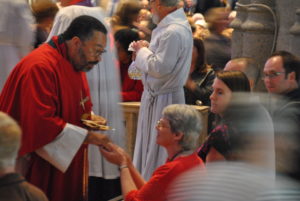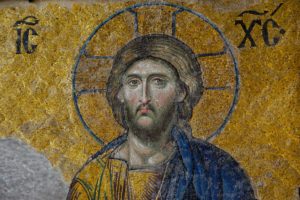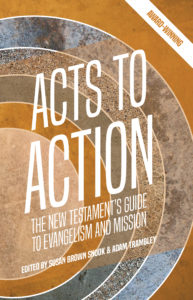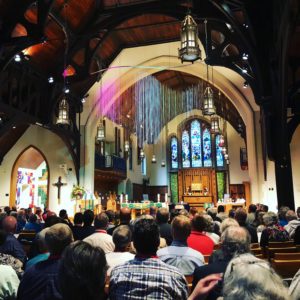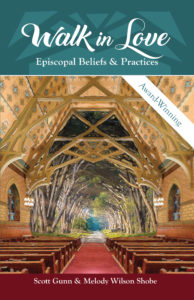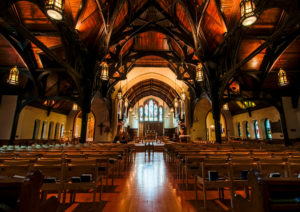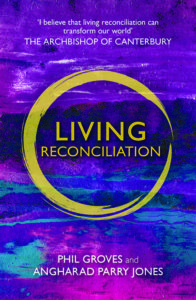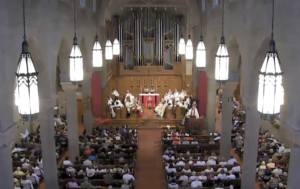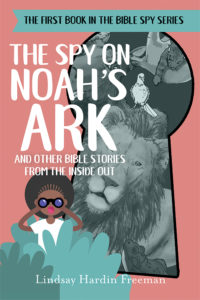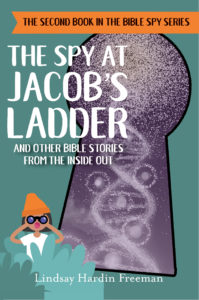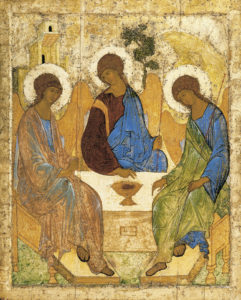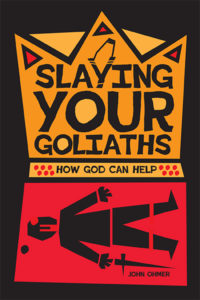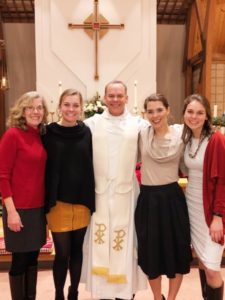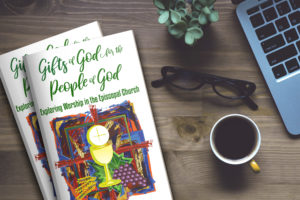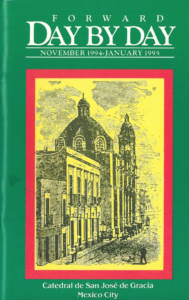Dear friends in Christ,
Last week, I wrote a bit about mercy and grace. Perhaps because I mentioned a news article of some interest, or perhaps because mercy and grace are entirely countercultural, I noticed that last week’s Forward Today was shared quite a few times. So I thought I would return to the topic of mercy.
We don’t tend to talk about mercy too much. We talk about things to which we are entitled. We talk about fairness. In some sense, fairness is crucial. Women and men should be paid the same rate for the same work, for example. People should have access to the same jobs regardless of their race. Fairness and justice are important markers of ensuring that people are able to flourish as the people God has made them to be, so we should never turn away from our need to work for justice.
But what about mercy? The scriptures are full of stories of God’s mercy toward humanity. Despite our continual rejection of God’s way, God still loves us. Justice would demand that we be punished for our error, but God chooses mercy.
The Gospels in particular are filled with ways in which Jesus Christ manifests mercy. Jesus offers healing to people without first ensuring they “deserve” it. Jesus is endlessly patient and loving with his followers, who never quite seem to get it. And, in the end, Jesus forgives even those who put him to death.
We are meant to love others as Christ loves us. So we too should manifest mercy. What would it be like to focus on being merciful? In small ways, we could be generous with that driver who sneaks up and wants to cut in front of us on the road. We could be quick to forgive those who offend us with minor slights. In bigger ways, we could rethink how we treat refugees and prisoners. We could find ways to help those who struggle. We could always begin not with the question of “what is fair” but rather ask “what is merciful?”
Often when I attend Rite I services of Holy Eucharist, we say the Prayer of Humble Access from page 337 of The Book of Common Prayer.
We do not presume to come to this thy Table, O merciful Lord, trusting in our own righteousness, but in thy manifold and great mercies. We are not worthy so much as to gather up the crumbs under thy Table. But thou art the same Lord whose property is always to have mercy. Grant us therefore, gracious Lord, so to eat the flesh of thy dear Son Jesus Christ, and to drink his blood, that we may evermore dwell in him, and he in us. Amen.
Some people don’t like this prayer, maybe because it reminds us we’re not all that special. Because of our continual rejection of God’s love, we probably don’t deserve God’s infinite love, if God’s focus were only on justice. But as the prayer reminds us, God’s property is always to have mercy. I love this prayer because it reminds me that God is merciful to me, and in response to God’s love for me, I pray for strength to share God’s love and mercy with others. There’s nothing I can do to make God love me less or more.
Even if your church doesn’t use this lovely reminder of God’s mercy, you can say the prayer on your own any time, especially before Holy Communion. If we pray for mercy, we might just find ourselves being merciful. We might find ourselves changing the world, one life at a time—beginning with our own.
Yours faithfully,
 |
Today’s Flash Sale: Gifts of God for the People of God
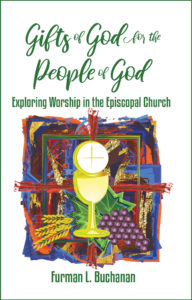 Worship can be a powerful way to encounter the living God. Our stories intersect with God’s story as the gifts of God are celebrated and shared by the people of God. Episcopal priest Furman L. Buchanan explores and reflects on each element of Holy Eucharist, the service most often held on Sunday mornings. Moving from the first spoken word of the service—blessed—to the last phrase—Thanks be to God—Buchanan explains the theological and scriptural elements of the service, helping newcomers and longtime members alike gain a deeper understanding of this gift of God.
Worship can be a powerful way to encounter the living God. Our stories intersect with God’s story as the gifts of God are celebrated and shared by the people of God. Episcopal priest Furman L. Buchanan explores and reflects on each element of Holy Eucharist, the service most often held on Sunday mornings. Moving from the first spoken word of the service—blessed—to the last phrase—Thanks be to God—Buchanan explains the theological and scriptural elements of the service, helping newcomers and longtime members alike gain a deeper understanding of this gift of God.
Buchanan also shares his own stories, connecting pivotal life experiences with the words and actions of Holy Eucharist. Thoughtful questions at the end of each chapter invite readers to reflect on their own stories and how they connect with God’s story of love and life.
Regular: $15
Today: $11.25
*Discount is valid until 11:59 p.m. Eastern Time




